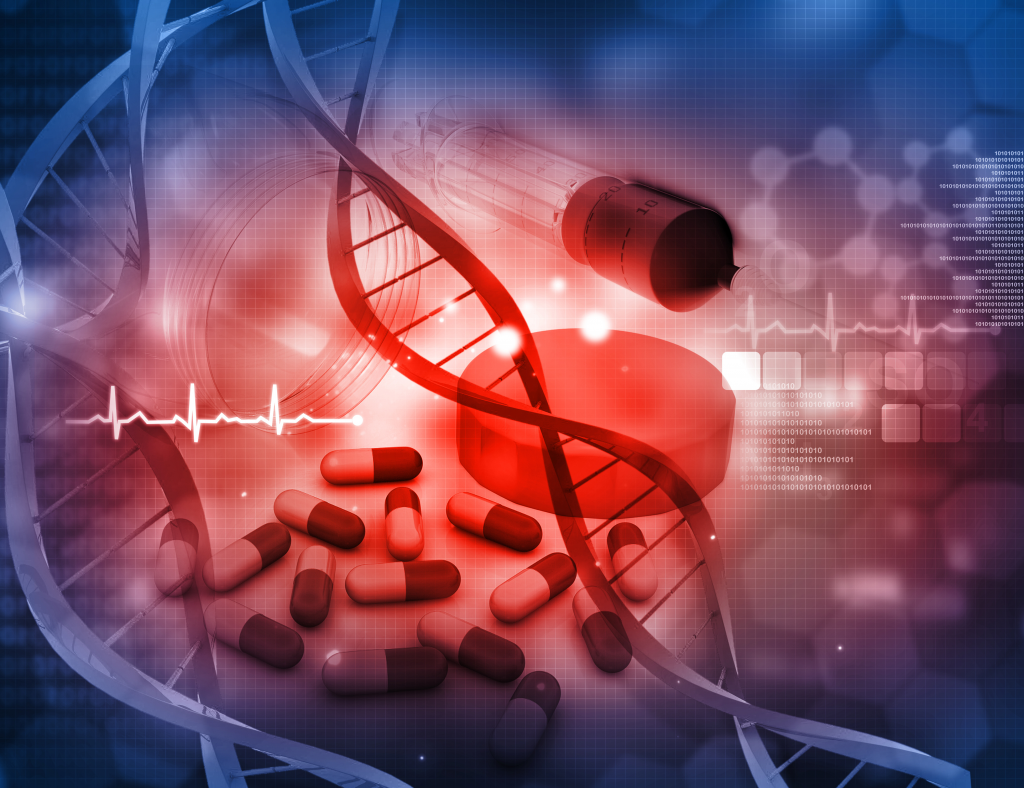
Today’s blog post discusses the reasons why personalized medicine is important especially in regard to cancer therapy.
The aim
The aim of personalized medicine is to transform the traditional „one-fits-all“ model into targeted therapies.1 With the help of modern diagnostics individual, genetic informations are used to find the right drug, in the right dosage, for the right patient at the right time.2
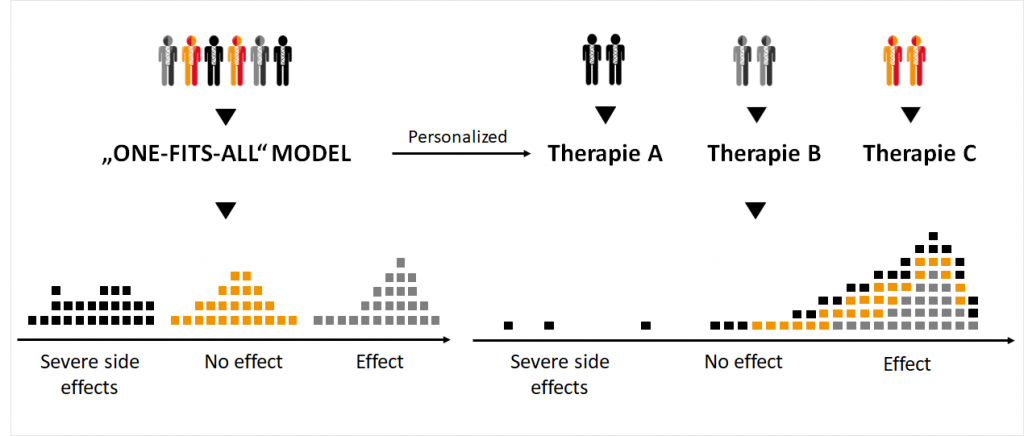
The problem
Every year, between 25,000 and 58,000 people die as a result of side effects or drug interactions,3 about 30,000 people die due to wrong medication.4
Missing evidence base
One reason is that one third of all drugs are prescribed without any evidence base meaning without any scientific evidence for their benefit.3 This also becomes clear in cancer therapy. 57% of the 68 oncology drugs approved between 2009 and 2013 had no real scientific evidence to provide survival benefits or an improvement of quality of life.5 After five years on the market, only 51% had shown therapeutic benefits.5
People respond differently to drugs
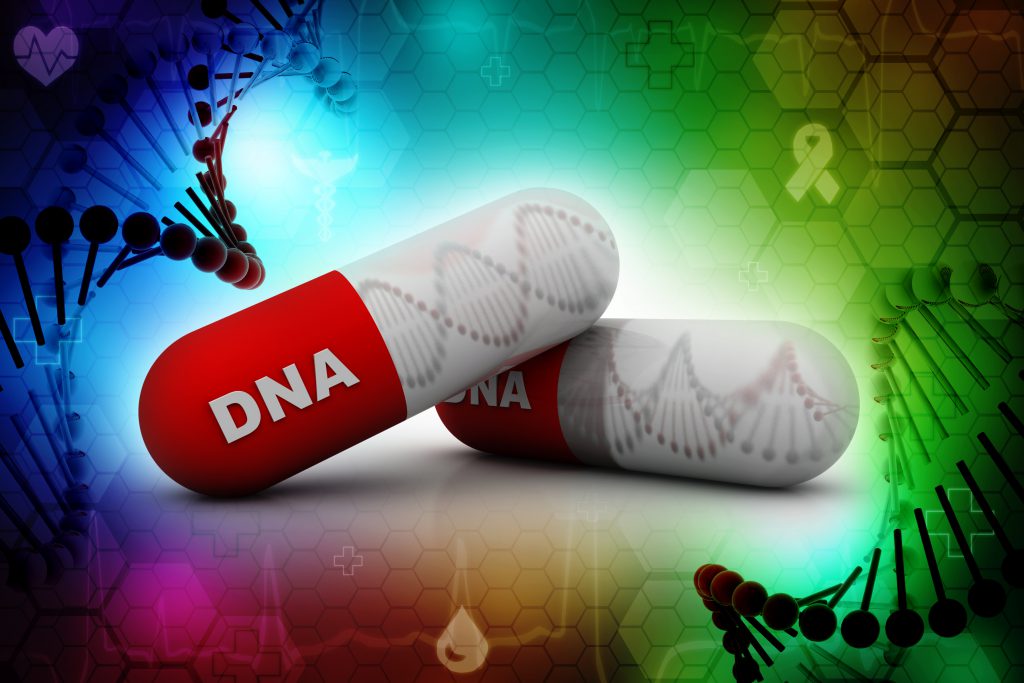
Another reason is that people respond differently to mediaction. „There are seven billion people. Each of them reacts differently to a drug.“ Dr. Josef Scheiber, Managing Director and founder of BioVariance GmbH. This fact has been understood since the 1950s.6 Today it is known that a significant proportion is genetically determined.1 Organisms metabolize foreign substances through a complex enzyme system that varies from individual to individual.7
Ineffectiveness in therapy
Patients can thus be roughly devided into two groups: so-called responders showing an effect on a given drug and so-called non-responders showing no effect on a given drug or it is associated with side effects.8
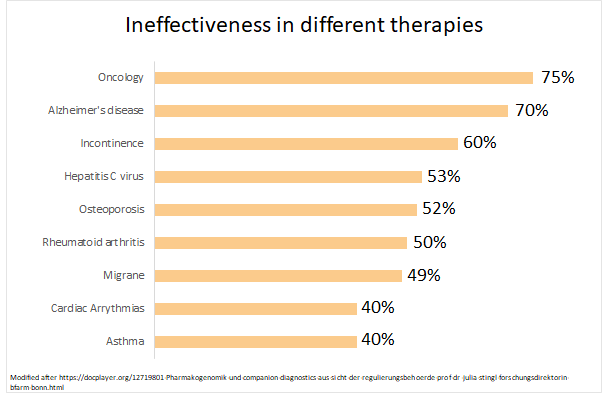
An example from cancer therapy makes this clear: 75% of all cancer patients are placed in the second category meaning that these people don’t respond to the prescribed drug.8 Due to the ineffective medication, precious time is lost in which the cancer can spread further.8 The side effects occuring are unnecessarily affect the quality of life of patients.8 It also creates huge health system costs that could be avoided.8
Cancer research
Progress at molecular level
In cancer research major advances have been made at molecular level. Cancer is not, as previously assumed, a disease of an single organ, but rather a disease of the genome.9 This is due to changes in one or more genes.9 Thus, every cancer differs from another. Humans have around 25,000 genes, of which, according to the current state of knowledge, about 300 are cancer-relevant.9
Personalized medicine in cancer therapy
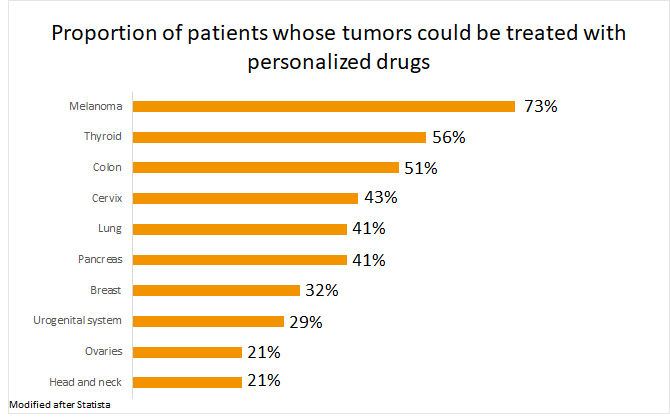
In the fight against cancer there were only surgery, radiation and chemotherapy available until the year 2000, but personalized medicine will open up new possibilites.10 This is especially nowadays important. The negative side of the previous cancer therapy is well known. Due to the administration of cytostatics not only cancer cells are destroyed, but also the healthy body cells are attacked leading to serious consequences.11 By means of precision medicine, these unwanted side effects are largely avoided and cancer patients are treated more purposefully.
Epidemiology
Cancer is still the second leading cause of death in Germany as well as in the US.12 In addition, the number of new cancer patients is increasing year by year. This year it is estimated that 493,600 new cancer cases will be added in Germany, worldwide about 18.1 million.13,14 Forecasts predict that this value will raise to 21.6 million by 2030 and to 29.4 million by 2040.15,16
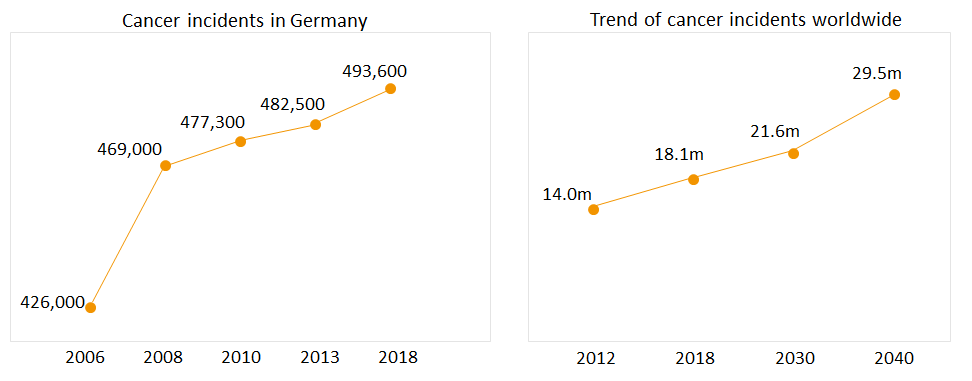
Trend in cancer therapy
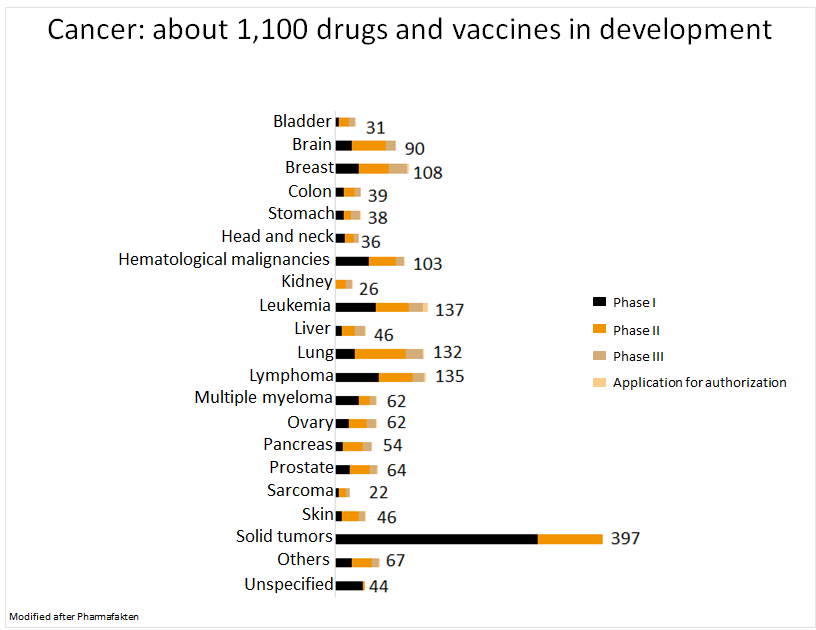
It is estimated that the costs of cancer drugs and concomitant therapies will increase by 6-9% annually by 2021.17 However, this isn’t a reason to turn against personalized medicine. Pharmaceutical markets are highly dynamic. And cancer is the disease with the most medications are approved for at the moment.18
Currently there are over 1,100 drugs and vaccines under development, pf which 85% are for first-in-class therapies, meaning that these agents use a new and unique mechanism fighting against the disease.19 However, the expenses of the statutory health insurances spending on medicines remains relatively constant: from 17.7% in 1970 to 17.0% today.20
People are open-minded for personalized medicine
Personalized medicine is based on „big data“, which means that existing data are included in the diagnosis in order to achieve a so-called stratification of patients.1 It turns out that people are being open to this new form of therapy.21 According to a survey by PwC, seven out of ten people in Germany are prepared to provide their personal disease figures if this results in better treatment.21
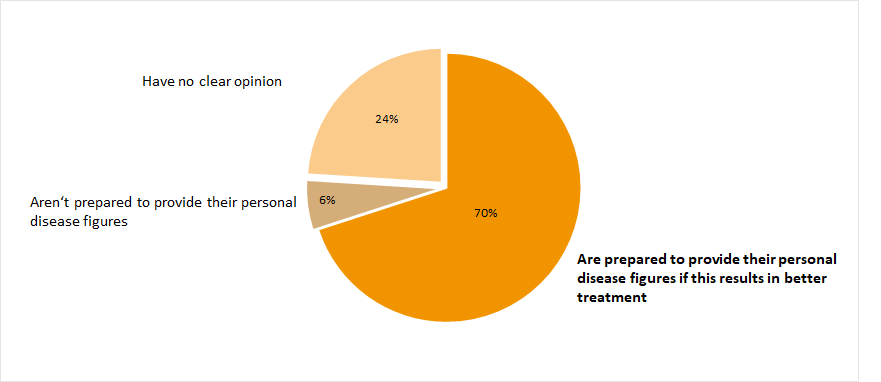
62 drugs have been approved for personalized medicine

The trend is towards personalized medicine. Worldwide there are 631 molecules in the late-stage clinical development in the pharmaceutical industry.17 Of those, 90% are dedicated to targeted therapies.17 So far, 62 drugs have been approved for personalized medicine.1
Thus, in order to achieve the best possible therapy, one has the tool of modern diagnostics in addition to the previously performed diagnosis taking the characteristics of a patient into account. This makes it possible to decoding genetic characteristics for a targeted therapy.
Contact Person:
Kristina Schraml (kristina.schraml@biovariance.com)
Sources



